| 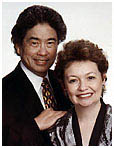 Effective
Teaching...
Effective
Teaching...
by Harry and Rosemary
Wong
August
2005
The Most Important
Factor
The most important
factor that must be established the first day
and first week of school is Consistency.
Consistency means that the classroom is organized
and predictable. There are no surprises and both the teacher
and the students know how the class is organized and run.
The students know what to do. They know the procedures.
The students, for instance, know the procedures for
coming to attention,
entering the classroom and getting to work,
asking for help,
walking down the hall, and
lining up for the buses.
In the instructional realm, they know the procedures for
heading a paper,
working in a group, and
distributing or exchanging materials.
The result is the teacher is not constantly ordering
or yelling at the students over what to do.
Power comes when you make life predictable
for people.
| |
Howard Stevenson
The First Days
of School, page 88 |
The Difference Between Discipline and Procedures
DISCIPLINE: Concerns how students BEHAVE.
When you have a teacher who does not have an organized classroom
management action plan, you have a teacher who has a disorganized
classroom. This, of course, results in discipline problems
and the teacher spends much wasted academic engaged time handling
behavior problems.
Handling behavioral problems only results in temporary
behavior change.
PROCEDURES: Concerns how things are DONE.
A teacher who has a classroom management action plan will have
an organized and structured classroom where both the teacher and
students will know what to do.
To see what a Classroom Management Action Plan looks like and
read how it made a first year teacher instantly successful in
her first year, read “How A Good University Can Help You”
in our September 2001 column. (https://teachers.net/wong/SEP01)
The culmination of this Classroom Management Action Plan can
be seen on
www.ClassroomManagement.com
Students who know what to do in the classroom produce
results and results produce learning and achievement.
This is because the students take responsibility and ownership
for the task that needs to be done, resulting is fewer behavior
problems and increased academic learning time.
Procedures result in behavior changes that are
permanent.
Stated in a similar manner
Effective teachers MANAGE their classrooms with procedures
and routines.
Ineffective teachers DISCIPLINE their classrooms with threats
and punishments.
A Morning Routine
The staff at a school in Las Vegas establishes and reinforces
a set of consistent procedures before school begins every morning.
This sets the tone for learning during the school day.
The principal of the K-6 school is Lee Douglas. They have
a morning routine, which is lead by a different class each week.
The class has been rehearsed by the teacher and a different student
leads each part of the routine or ceremony.
Morning Opening Ceremony
- Line Up. A teacher beats on a set of
drums and that is the signal to line up. The students
have a designated line and they hurry to line up quickly because
one primary and one elementary classroom with be selected to
receive the “Line of the Day” award. This
is nothing more than a stick with a sign at the top, but they
all want to earn it.
- Pledge of Allegiance and 30 seconds of Silent Meditation.
A student leads the pledge to the flag and then asks them for
30 seconds of silent meditation.
- School Song (Tuesday and Friday). Another
student asks the students to join in on the singing of the school
song.
- Law of the Pack. The school mascot
is a wolf, so they refer to themselves as the wolf pack. A student
says, “Please repeat after me…”
A GRAGSON GREY WOLF IS:
Caring, Curious, Confident,
Cooperative, Courageous,
Flexible, Friendly,
Honest, Organized,
Responsible, Respectful,
Patient, Motivated,
Shoes Initiative, Effort,
Perseverance, Has Integrity,
A Sense of Humor and is a Problem Solver.
- Pack Slogan. A student says, “On
the Count of Three: 1, 2, 3,” or “Ready, begin…”
WE WILL BE REMEMBERED BY THE TRACKS WE LEAVE BEHIND
- Pack Motto. Another student leads and
says, “On the Count of Three: 1, 2, 3,” or “Ready,
begin…”
Good, Better, Best,
Never Let It Rest,
Till the Good is Better,
And the Better is Best!
- The Grey Wolf Pledge. A student says,
“On the Count of Three: 1, 2, 3,” or “Ready,
begin…”
I believe in myself and my ability to do my best at all
times.
I will act in such a way that I will be proud of myself,
and others will be proud of me too.
I will not waste this day,
because this day will not come again.
- Review of Weekly Life Skills. A teacher
reminds the students of the life skill being learned for the
week.
- Dismissal. The principal, Lee Douglas,
presents the “Line of the Day” award to the primary
and elementary class that has demonstrated promptness, procedures,
and participation.
The recitation of the words to the song, law, motto, and pledge
all reinforce the CULTURE of the school.
Thus, the students begin school each day
with a vision
and purpose for coming to school and with
a set of procedures to use to succeed in school.
You can see this because when the drum beats again, the classes
file off the playground, lead by the Line of the Day classes first.
As the students file down the hallways, there is no talking or
pushing, because the procedure is ZIP (your lips) and FLIP (fold
your arms).
And when they enter their respective classrooms, there is a bellwork
assignment posted. The students start their school work
immediately!
How Procedures Were Developed
How did this school in Las Vegas develop the procedures
for a morning ceremony?
Working as a learning community, they met for a series of staff
development meetings and studied a different chapter, and revisited
some, from The First Days of School
at each meeting.
These are the procedures they used:
- They met for 30 minutes every Friday.
- They studied a different chapter, and revisited some, from
The First Days of School each Friday.
- Each Friday the teachers brought in something that worked
to share, thus, new teachers saw lots of models from the veteran
teachers
- They agreed on and implemented one new procedure every two
weeks.
- They Structured Everything. There is school-wide
consistency.
They agreed on and implemented one new procedure every two weeks.
They determined a need to have school-wide consistency.
Lee Douglas says, “When school began this year, we hit
the floor running. It flows.
I’ve been in education for 30 years and I have never seen
anything like this. Our school, which is in a high at-risk
community, flows so well!”
She further says, “Everything in the lives of our students
is chaotic. School is the only part of their life that is
consistent.”
A sixth grade boy said, “I like coming to class because
everyone knows what to DO, so no one yells at you and you can
get on with learning.”
Note the operative verb, “DO.” As so many students
will say, “How can I do what I am supposed to do
when no one tells me what they expect me to do?”
You can always differentiate the teachers who are doing well
from those who are not. The ones who are not doing well
are always talking about the poor discipline
and behavior of their students.
Whereas, the effective teachers are talking about what their
students are DOING, achieving, and accomplishing.
Thus, in some classrooms the teachers are preoccupied with student
behavior and in other classrooms the teachers are preoccupied
with student learning.
Why?
The problem in many classrooms is not
discipline.
It is the lack of procedures and routines.
With a Classroom Management Action Plan (www.ClassroomManagement.com)
, you can have a straightforward, well-established way to
- improve your teaching effectiveness and
- the student’s level of learning.
Create a Critical Mass
There’s more to the story of Lee Douglas and her
teachers. Las Vegas, or really the Clark County
schools, is the fifth largest school district in America (surpassed
by New York, Los Angeles, Chicago, and Miami-Dade County).
They open a new school every month and hire 2000 new teachers
each year.
The district will often move an effective principal to open a
new school. This happened to Lee Douglas, but the move was
easy for her.
She took a critical mass (a small group) of effective
teachers with her and between them they set the culture for the
new school starting on the first day of school.
It’s much easier to establish a culture if there is a preexisting
culture that can be transferred, especially with a group of teachers
who already know and practice the culture.
The new teachers who made up the rest of the staff saw the value
of having consistency, especially with a set of successful procedures
that had worked elsewhere. Why reinvent the wheel?
So, what do you do if you do not have an administrator
like Lee Douglas or a principal who hasn’t even invented
the wheel?
Get together as a grade level or academic subject level
and start your own culture.
Build your own critical mass. Make this
a win-win situation and help the principal to see the efficacy
of school-wide procedures. And it will be a win-win situation
if there are enough teachers who are using an organized classroom
management action plan.
A Professional Learning Community
There is a simple, powerful concept that supports and validates
the practice used at Lee Douglas’ school. It is the
concept of working together as a team or a family. The catch-phrase
in education is a Professional Learning community.
Professional Learning Communities work together "on
a continuing basis. A high performing school has
never been found where people work in isolation.
There is absolutely no research to show
that student learning
improves when teachers work in isolation.
Where people work in isolation, there is no culture. Since
culture refers to what people believe and what they do, where
there is no culture there are no beliefs and no common set of
practices that guides a school.
- An ineffective school has a culture that is easily
discernable. Here, the teachers work in isolation,
cover materials, and share nothing.
- An effective, high performing school has a culture.
The teachers talk about teaching practice; they work
together in designing curriculum and instruction; and they help
each other to improve practice.
Start by gathering a group of teachers who will meet regularly
to:
identify essential student learning,
develop and implement new lessons,
assess their results,
adjust their lessons based on their results,
share strategies,
set explicit, achievement goals and
continue this practice on a continuing basis.
In a professional learning community, the staff is continually
learning from research as it modifies its organization, programs,
and practices to meet the needs of all students. There is
continual reflection, feedback, and problem solving.
In a professional learning community, the staff participates
in a series of practices that organizes and promotes mutually
respectful relationships between and among its staff and students.
The Best New School Year
We’ve said it before and we’ll say it again.
Teachers belong to one of the few professional that allows you
to start all over again each year. When school begins again,
you will have a new group of students who have never seen you
before. You can do anything you want to them and YOURSELF.
You can just do what you’ve always done before.
The surest path to stagnation is to do
nothing or just get by.
The First Days of School, page 285
Or, before school begins again:
- Make a commitment to start on a ten percent risk plan.
The First Days of School, page 304.
- Start a learning plan for yourself. Don’t
be afraid to learn. Knowledge is weightless, a treasure
you can always carry easily. The First
Days of School, page 293 or all of Unit E.
- Listen to Never Cease to Learn, the CD that is found
at the back of
The First Days of School, 3rd edition.
It is much easier to develop good habits, than it is to break
bad habits. If you dare to teach, you must never cease to
learn.
As you start another school year, please recognize that
Some teachers come and go.
Others come, stay for a while
and leave foot prints on their student’s hearts.
They do not do this with some gimmick
or fancy program.
They do this by providing strong academic content,
which has been developed with a team, and
managing their classrooms with procedures
so that teaching and learning can take place
in an organized classroom.
You can leave lots of foot prints.
Best wishes for a great new school year!
 For a printable version of this article click
here.
For a printable version of this article click
here.
Harry & Rosemary Wong products: http://www.harrywong.com/product/
Email Harry Wong: harrywong@teachers.net
Gazette Articles by Harry & Rosemary Wong:
If you spot a link that appears to be out-of-date, please alert us at webmaster@teachers.net!
- A Grateful Goodbye After 15 Years (Jun 2015)
- Love, Marriage, and Babies, Oh My! (May 2015)
- Retention Rate Is 100 Percent (Apr 2015)
- Teacher Effectiveness and Human Capital (Mar 2015)
- Training Teachers to Be Effective (Feb 2015)
- Making Deals Is Ineffective (Dec 2014 / Jan 2015)
- Retrieving and Carrying Electronic Devices (Nov 2014)
- Sharing to Succeed (Oct 2014)
- How a University Prepares Its Students (Sep 2014)
- Effective Teaching (Aug 2014)
- Your Future Is in Your Hands (June/July 2014)
- The Classroom Management Book (May 2014)
- When Students Succeed; Teachers Succeed (April 2014)
- Teaching New Teachers How to Succeed (March 2014)
- Execute and Praise (February 2014)
- Shaping a Solid Foundation (Dec 2013 / Jan 2014)
- The Most Misunderstood Word (November 2013)
- How to Start Class Every Day (October 2013)
- Prevention: The Key to Solving Discipline Problems (September 2013)
- Planning, Planning, Planning (August 2013)
- Are You THE One? (June / July 2013)
- Practical Examples That Work (May 2013)
- A Disability Is Not a Handicap (Apr 2013)
- Totally Inexcusable (Mar 2013)
- Be Proud of Public Education (Feb 2013)
- Structure Will Motivate Students (Dec 2012 / Jan2013)
- Orchestrating the Classroom (Nov 2012)
- The Lasting Impact of Instructional Coaching (Oct 2012)
- Learning, Laughing, and Leaving a Legacy (Sep 2012)
- Twenty-two, First Year, and Legit (Aug 2012)
- A Master Teacher of Teachers (June/July 2012)
- Where Going to School Means Success (May 2012)
- A Nationally Celebrated High School (Apr 2012)
- The Highest Rated School in New York City, Part 2 (Mar 2012)
- The Highest Rated School in New York City, Part 1 (Feb 2012)
- The Importance of Culture (Dec 2011 / Jan 2012)
- You Can Teach Classroom Management (Nov 2011)
- Seamless, Transparent, and Consistent (Oct 2011)
- Coaching Teachers to Be Effective Instructors (Sep 2011)
- How a Principal Creates a Culture of Consistency (Aug 2011)
- Graduation Begins in Your Classroom (June/July 2011)
- The Inspiration of a Mother (May 2011)
- How to Be an Effective Leader (Apr 2011)
- Learning Objectives: The Heart of Every Lesson (Mar 2011)
- Even Shakespeare Had Structure (Feb 2011)
- Effectiveness Defined: It's Not a Mystery (Dec 2010 / Jan 2011)
- Surviving Without a Principal (Nov 2010)
- Achieving Greatness: Locke Elementary School, Part 2 (Oct 2010)
- Teaching Greatness: Locke Elementary School, Part 1 (Sep 2010)
- Effective from the Start (Aug 2010)
- Ten Year Summary of Articles, 2000 to 2010 (June/July 2010)
- The Success of a Culture of Consistency (May 2010)
- Training Teachers to Be Effective (Apr 2010)
- Learning to Teach, Teaching to Learn (Mar 2010)
- Turning Teaching Dreams into Reality (Feb 2010)
- Dreams and Wishes Can Come True (Dec 2009 / Jan 2010)
- Success in a State Controlled School (Nov 2009)
- Inner City Is Not An Excuse (Oct 2009)
- Exceeding All Expectations (Sep 2009)
- Teachers Are the Difference (Aug 2009)
- Nine Year Summary of Articles, 2000 to 2009 (Jun/Jul 2009)
- Teachers Are the Greatest Assets (May 2009)
- The Tools for Success (Apr 2009)
- Assessing for Student Learning (Mar 2009)
- To Be an Effective Teacher Simply Copy and Paste (Feb 2009)
- The Sounds of Students Learning and Performing (Dec 2008)
- A School That Achieves Greatness (Nov 2008)
- Boaz City Schools: Professional Learning Teams (Oct 2008)
- It Was Something Close to a Miracle (Sep 2008)
- A Computer Teacher Shows the Way (Aug 2008)
- Eight Year Summary of Articles, 2000 to 2008 (Jun/Jul 2008)
- An Amazing Kindergarten Teacher (May 2008)
- Schools That Beat the Academic Odds (Apr 2008)
- Academic Coaching Produces More Effective Teachers (Mar 2008)
- Coaches Are More Effective than Mentors (Feb 2008)
- Wrapping the Year with Rap! (Dec 2007/Jan 2008)
- The Floating Teacher (Nov 2007)
- Taking the Bite Out of Assessment—Using Scoring Guides (Oct 2007)
- Ten Timely Tools for Success on the First Days of School (Sep 2007)
- First Day of School Script - in Spanish, Too! (Aug 2007)
- Seven Year Summary of Articles, 2000 to 2007 (Jun 2007)
- Effective Teachers End the Year Successfully (May 2007)
- Training Gen Y Teachers for Maximum Effectiveness (Apr 2007)
- Classroom Management Applies to All Teachers (Mar 2007)
- Students Want a Sense of Direction (Feb 2007)
- Rubrics in Two College Classes (Dec 2006/Jan 2007)
- How to Write a Rubric (Nov 2006)
- Assessing Student Progress with a Rubric (Oct 2006)
- A 92 Percent Homework Turn-in Rate (Sep 2006)
- Effective Teachers Are Proactive (Aug 2006)
- Five Year Summary of Articles (Jun 2006)
- Hitting the Bulls Eye as a Beginning Teacher (May 2006)
- They're Eager to Do the Assignments (Apr 2006)
- The Success of Special Ed Teachers (Mar 2006)
- What Teachers Have Accomplished (Feb 2006)
- Fifty Years Ago, The Legacy (Dec 2005/Jan 2006)
- The Emergency Teacher (Nov 2005)
- Classroom Management Is Not Discipline (Oct 2005)
- A Successful First Day Is No Secret (Sep 2005)
- The Most Important Factor (Aug 2005)
- Four Year Summary of Articles (Jul 2005)
- Improving Student Achievement Is Very Simple (Part 2) (Jun 2005)
- Improving Student Achievement Is Very Simple (Part 1) (May 2005)
- Never Cease to Learn (Apr 2005)
- His Classroom Is a Real Life Office (Mar 2005)
- The Power of Procedures (Feb 2005)
- The First Ten Days of School (Jan 2005)
- PowerPoint Procedures (Nov/Dec 2004)
- The Saints of Education (Oct 2004)
- How Procedures Saved a Teacher's Life (Sep 2004)
- How to Help Students with Their Assignments (Aug 2004)
- Three Year Summary of Articles (Jun/Jul 2004)
- His Students are All Certified (May 2004)
- What to Do When They Complain (Apr 2004)
- A Well-Oiled Learning Machine (Mar 2004)
- The Effective Teacher Adapts (Feb 2004)
- How to Start a Lesson Plan (Aug 2003)
- Applying for a Teaching Job in a Tight Market - Part 2 (Jun/Jul 2003)
- Applying for a Teaching Job in a Tight Market (May 2003)
- The Effective Substitute Teacher (Apr 2003)
- A First Day of School Script (Mar 2003)
- How to Retain New Teachers (Feb 2003)
- No Problem With Hurricane Lili (Dec 2002)
- A Class Size of 500 (Nov 2002)
- Effective Practices Apply to All Teachers (Oct 2002)
- Dispensing Materials in Fifteen Seconds (Sept 2002)
- How To Start School Successfully (Aug 2002)
- Teaching Procedures Is Teaching Expectations (June - July 2002)
- $50,000 to Replace Each Teacher (May 2002)
- Even Superintendents Do It (Apr 2002)
- Impossible, No Job Openings? (Mar 2002)
- A Stress Free Teacher (Feb 2002)
- A Most Effective School (Jan 2002)
- Van Gogh in Nine Hours (Dec 2001)
- The Effective Teacher Thinks (Nov 2001)
- How a Good University Can Help You (Sep 2001)
- How to Motivate Your Students (May 2001)
- How to Recognize Where You Want to Be (Apr 2001)
- What Successful New Teachers Are Taught (Mar 2001)
- A Journey of the Heart (Feb 2001)
- The Miracle of Teachers (Jan 2001)
- It's Not the Students. It's the Teacher. (Dec 2000)
- The First Five Minutes Are Critical (Nov 2000)
- How to Start a Class Effectively (Oct 2000)
- The Problem Is Not Discipline (Sep 2000)
- There Is Only One First Day of School (Aug 2000)
- Applying for Your First Job (Jul 2000)
- Your First Day (Jun 2000)
Browse through the latest posts from the Classroom Management
Chatboard...
|


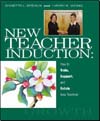

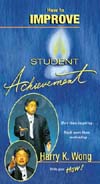



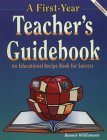
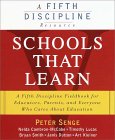

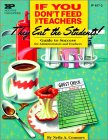
 Effective
Teaching...
Effective
Teaching...